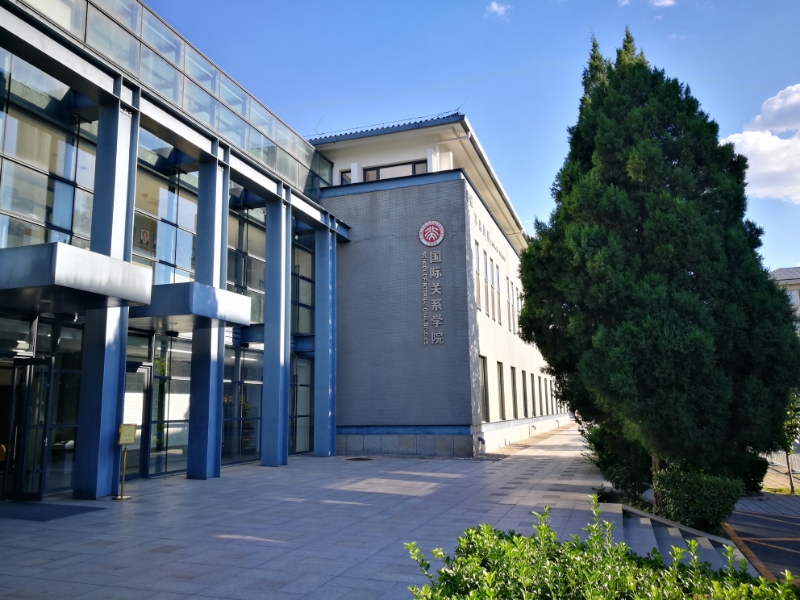The School of International Studies (SIS) at Peking University is the earliest-established international studies school among Chinese universities. It is dedicated to cultivating specialized researchers in international affairs, top-level professionals for diplomatic service, and well-rounded talents with a global perspective, Chinese values, cross-cultural competence, and the adaptability to meet diverse societal needs.

SIS boasts a century-long disciplinary legacy and profound academic traditions, tracing its origins to the School of Political Science at the Imperial University of Peking and later the Department of Political Science at Peking University. In 1964, Peking University founded the Department of International Politics, building on its original Department of Political Science. In 1996, the Department of International Politics, the Institute of International Relations, and the Institute of Asian and African Studies merged to form the current School of International Studies. Today, SIS consists of six departments and three research institutes: the Department of International Politics, the Department of Diplomacy and Foreign Affairs Management, the Department of International Political Economy, the Department of Comparative Politics, the Department of International Organizations and International Public Policy, and the Department of National Security Studies, as well as the Institute of International Relations, the Institute of Asian and African Studies, and the Institute of World Socialism.
At the undergraduate level, SIS offers two majors—International Politics (with specializations in International Political Economy and International Organizations & International Public Policy) and Diplomacy. It also offers two interdisciplinary programs of “International Politics & International Finance” and “Foreign-Related Legal System and Global Governance”. Both International Politics and Diplomacy are recognized as national first-class undergraduate programs. At the master’s level, SIS offers eight research master’s programs: International Politics, International Relations, Diplomacy, International Political Economy, Comparative Politics, History of the Chinese Communist Party, Scientific Socialism and International Communist Movement, and International Organizations & International Public Policy. A professional master's program in Public Administration (International Public Policy) is also available. At the doctoral level, SIS offers seven programs: International Politics, International Relations, Diplomacy, International Political Economy, Comparative Politics, Scientific Socialism and International Communist Movement, and National Security. International Politics and Scientific Socialism & International Communist Movement are designated as National Key Disciplines. Additionally, together with the School of Government and the School of Marxism at Peking University, SIS has set up a postdoctoral research station in political science to advance interdisciplinary research in political studies.
Faculty research at SIS encompass a wide range of fields, primarily focused on five key areas:
SIS currently operates 18 research institutions, including four provincial/ministerial-level research bases approved by the Ministry of Education and the Ministry of Culture and Tourism, as well as Peking University Analysis Laboratory for Global Risk Politics. The Institute of International and Strategic Studies (IISS), as a substantive research entity, has consistently ranked among the world's top university-affiliated think tanks for years and remains Asia's highest-ranked academic think tank.
SIS publishes The Journal of International Studies, a Chinese core journal in political science, which is also indexed in the Chinese Social Sciences Citation Index (CSSCI). The IISS publishes China International Strategy Review, which gained considerable academic influence internationally. Additionally, SIS also hosts the Peking University Library’s International Relations Branch, serving as a specialized academic resource center.
A distinguishing feature of SIS is international education and global partnerships. It runs dual-degree and exchange programs with over 20 universities worldwide and maintains strong ties with nearly 30 institutions. SIS has established a comprehensive, full-chain international talent development model spanning undergraduate, master's, and doctoral levels.
Additionally, SIS facilitates exchange programs with multiple institutions such as Cornell University (USA), National University of Singapore (Singapore), Nanyang Technological University (Singapore), University of Tokyo (Japan), Korea University (South Korea), University of Würzburg (Germany), University of Tübingen (Germany), University of Oslo (Norway), Aarhus University (Denmark), and Thammasat University (Thailand), among others.
Furthermore, SIS engages in visiting scholar exchanges and joint research initiatives with leading global institutions. It regularly hosts high-profile international forums, such as the PKU-Harvard Conference on U.S.-China Relations, the PKU-UTokyo Forum, and the Five-University Conference (Peking University, Princeton University, the University of Tokyo, Korea University, and the National University of Singapore).